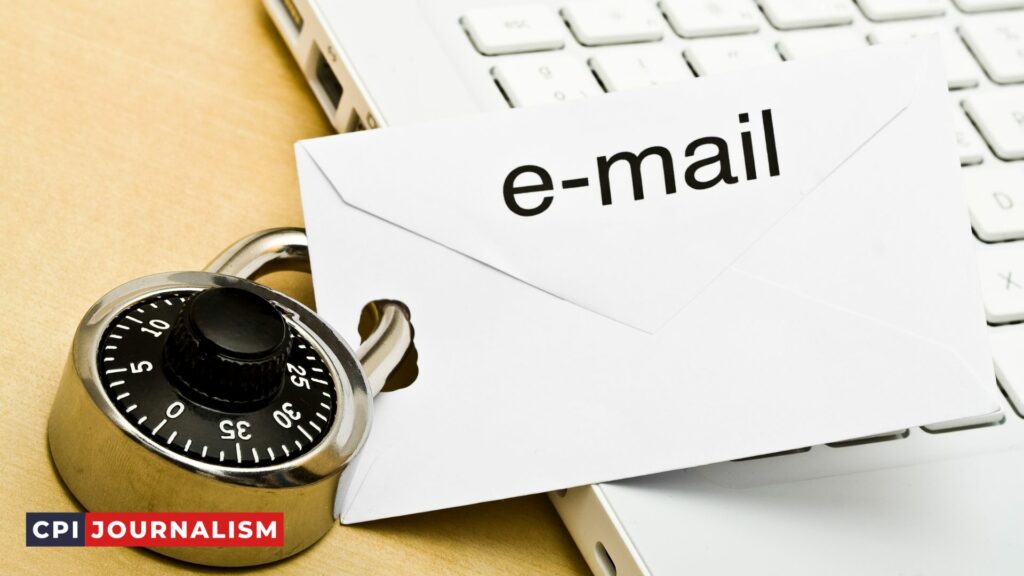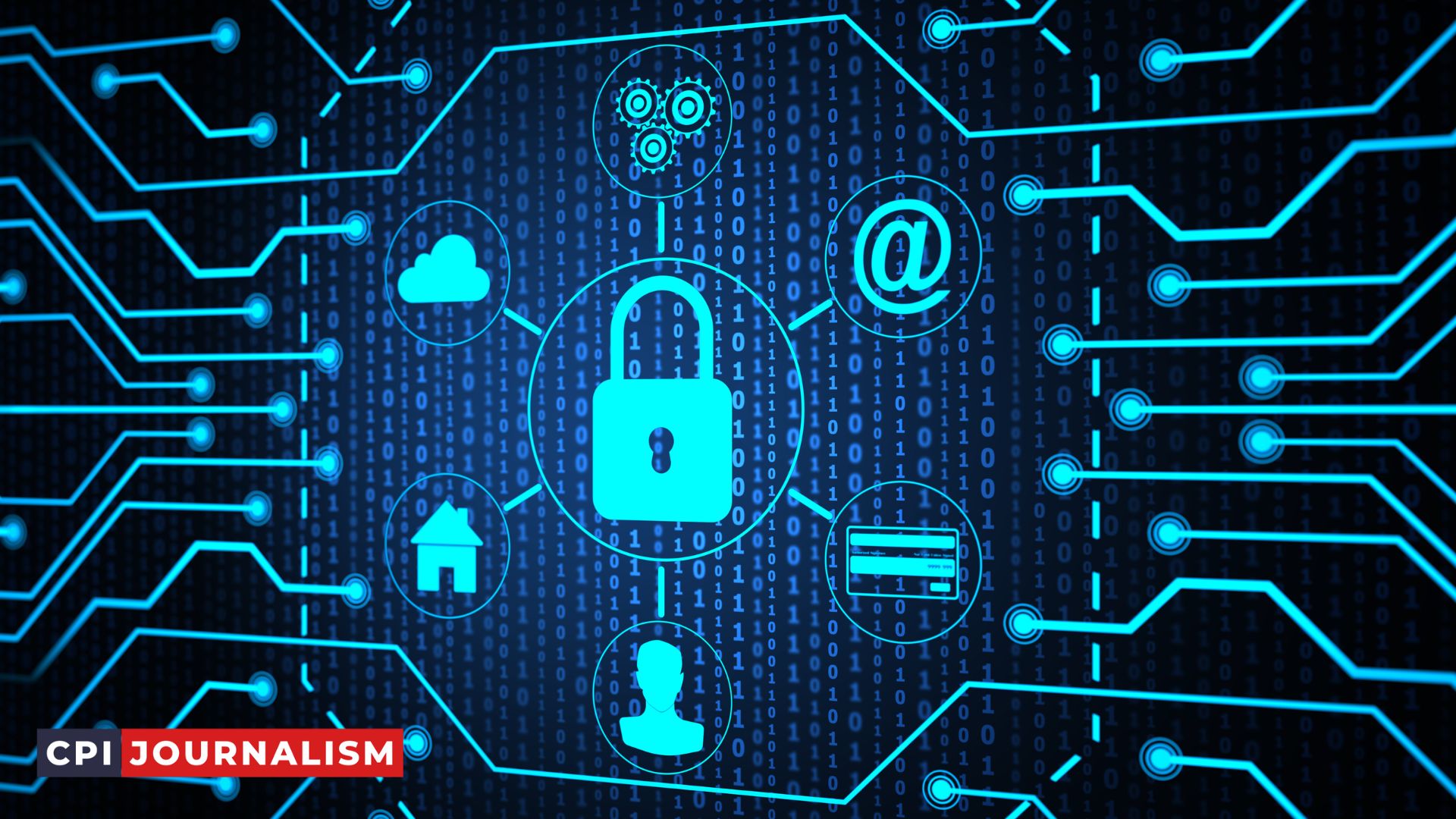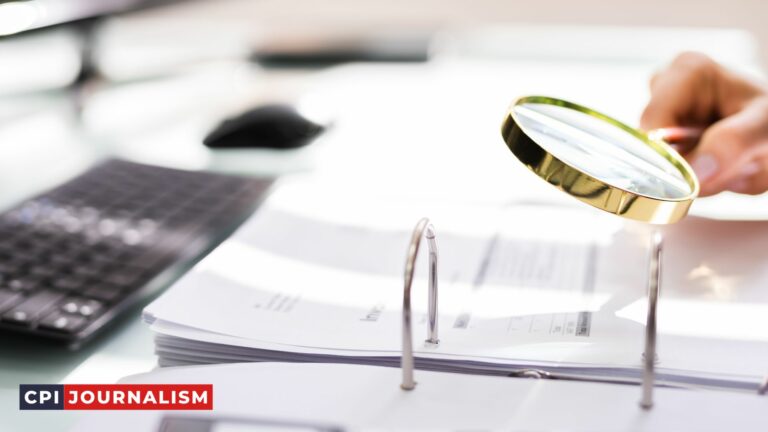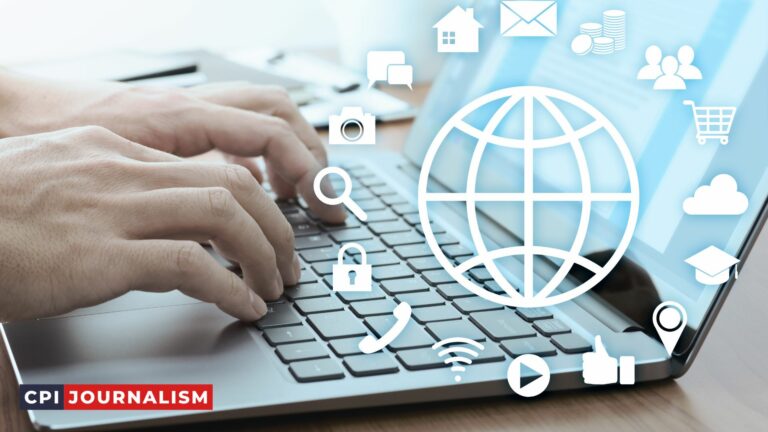What Are the Best Practices for Managing and Protecting Digital Security and Privacy in Investigative Journalism?
As an experienced journalist, I understand the importance of managing and protecting digital security and privacy during investigative journalism.
In today’s digital world, it is essential for journalists to understand and implement the best practices for digital security and privacy when conducting investigative journalism.
In this article, I will share my wisdom, experience and expertise on the best practices for managing and protecting digital security and privacy in investigative journalism.
I will outline key strategies and tips that can be used to ensure the safety of confidential and sensitive information, while also protecting the privacy of both the sources and the journalist.
A. Overview of Digital Security and Privacy
Digital security and privacy in investigative journalism are of utmost importance for journalists and their sources. In the digital age, information can be easily shared and distributed, making it vulnerable to malicious actors.
To ensure the safety of journalists and their sources, it is essential to understand the basics of digital security and privacy and to implement best practices in order to protect sensitive data and communications.
This overview will discuss the core concepts of digital security and privacy and the best practices that investigative journalists should follow to protect their digital assets.
Digital security can be broadly defined as the measures taken to prevent unauthorized access to or modification of digital information.
This includes the use of encryption, secure servers, and other measures to protect data from malicious actors. Digital privacy, on the other hand, is the ability to control how personal information is collected, stored, and used.
This includes the use of privacy tools such as Virtual Private Networks (VPNs) and Tor, as well as the adoption of strong passwords and two-factor authentication.
When it comes to investigative journalism, digital security and privacy are essential for protecting the safety of journalists and their sources. Journalists must be careful about the information they share and how they communicate with their sources.
It is important to use secure tools and methods for storing and sharing data, as well as for communicating with sources. This includes the use of encrypted messaging services, secure cloud storage services, and secure servers.
It is also important to use strong passwords and two-factor authentication to protect accounts. Additionally, journalists should be aware of the potential risks associated with using digital devices and should be careful when using public networks or sharing devices with others.
By understanding the basics of digital security and privacy and following best practices, investigative journalists can ensure that their digital assets are secure and their sources are protected.
II. Best Practices for Managing and Protecting Digital Security and Privacy in Investigative Journalism
The digital age has brought with it a range of new challenges and opportunities for investigative journalists. As investigative journalists we need to take extra steps to protect our sources, our data, and our own privacy while conducting in-depth investigations.
Here are some best practices for managing and protecting digital security and privacy in investigative journalism.
1. Use Encrypted Communication: When communicating with your sources, use an encrypted messaging service such as Signal, WhatsApp, or Telegram. This will ensure that your conversations are secure and that any sensitive information is kept out of the hands of third parties.
2. Use a Virtual Private Network (VPN): A VPN will help to protect your online activities from being monitored by third parties. It will also help to hide your IP address and location, making it more difficult for someone to track your online activities.
3. Use Secure Storage: When storing sensitive information, use a secure cloud storage service such as SpiderOak, Sync.com, or Box. This will help to keep your data safe and ensure that it is not accessible to unauthorized individuals.
4. Use a Secure Password Manager: A secure password manager such as LastPass, 1Password, or KeePass will help to protect your accounts by generating strong, unique passwords and storing them securely.
5. Use Two-Factor Authentication: When available, use two-factor authentication to protect your accounts. This adds an extra layer of security by requiring a code to be sent to your mobile device before you can login.
6. Be Cautious When Using Social Media: Be aware of the risks associated with using social media for investigative journalism. Be sure to use strong passwords, limit the amount of personal information you share, and be aware of the privacy settings available to you.
7. Avoid Public Wi-Fi: To protect your data from being intercepted, avoid using public Wi-Fi networks when conducting investigative work. Instead, use a secure, encrypted connection such as a VPN.
8. Monitor Your Activity: Monitor your online activity for any suspicious activity. This can help to identify any potential security threats and alert you to any malicious activity.
By following these best practices, investigative journalists can help to protect their sources, their data, and their own privacy while conducting in-depth investigations.
A. Establishing Secure Communication Channels
Secure communication channels are essential for investigative journalism. When sharing sensitive information with sources, it is important to ensure that your communications are as secure as possible, so that the information is not compromised or intercepted by third parties.
The first step is to establish a secure channel of communication, such as using an encrypted email service or a secure messaging platform.
Encrypted email services such as ProtonMail provide end-to-end encryption, meaning that emails sent through the service are encrypted and can only be decrypted by the intended recipient.
Secure messaging platforms such as Signal also offer end-to-end encryption, as well as additional security features such as disappearing messages and the ability to set a timer for messages to self-destruct after a certain period of time.
It is also important to ensure that sources are aware of the security measures that are in place and that they understand how to use them.
Sources should be made aware of the importance of avoiding suspicious links or attachments in emails, and should be encouraged to use secure communication channels whenever possible.
Finally, it is important to be aware of security vulnerabilities in the communication tools that you are using. It is important to keep your software and hardware up to date and to ensure that your communication tools are being used in a secure manner.
Regularly review the security measures in place and ensure that they are adequate for your needs.
1. Use Encrypted Messaging Apps
One of the most important best practices for digital security and privacy in investigative journalism is the use of encrypted messaging apps.
With the rise of digital surveillance, it’s essential for investigative journalists to ensure that their conversations and data remain secure and private.
Encrypted messaging apps allow journalists to exchange messages without fear of interception and ensure that their conversations remain confidential.
Popular encrypted messaging apps include Signal, WhatsApp, and Telegram, all of which have end-to-end encryption, meaning that the messages are encrypted from the sender’s device to the recipient’s device.
This means that only the sender and recipient can read the messages, not any third-parties. These encrypted messaging apps also have additional features such as self-destructing messages, which can be beneficial for investigative journalists who need to communicate sensitive information.
In addition, it’s important to remember to use strong passwords and two-factor authentication when setting up accounts on these encrypted messaging apps. This will provide an extra layer of security and help to protect your conversations.
By using encrypted messaging apps, investigative journalists can ensure that their conversations remain private and secure, allowing them to communicate sensitive information without fear of interception.
2. Use Secure Email Services
As an investigative journalist, one of the best practices you can use to protect your digital security and privacy is to use secure email services.
Secure email services can help you protect your sensitive data and communications from potential cyber threats, such as hackers and government surveillance.
Using a secure email service is a great way to ensure that your communications remain confidential and secure. Many of these services use encryption technology, which scrambles the content of your emails and makes them unreadable to anyone other than the intended recipient.
Additionally, some secure email services allow you to use two-factor authentication, which requires you to enter a code sent to your mobile phone in order to access your emails.

This adds an extra layer of security to your account and makes it much more difficult for someone to gain unauthorized access.
It is also important to choose a secure email service that has a good reputation for privacy and security. Look for services that have a good track record of protecting their user’s data and have strong policies in place to protect your privacy.
Additionally, some services offer zero-knowledge encryption, which means that the provider of the service cannot access the contents of your emails.
By using secure email services, you can be sure that your digital security and privacy is protected and your communications are kept confidential. This is an essential best practice for any investigative journalist.
3. Use Virtual Private Networks (VPNs)
One of the best practices for managing and protecting digital security and privacy in investigative journalism is the use of Virtual Private Networks (VPNs).
VPNs are an important tool that helps to protect the privacy of journalists, as well as their sources, by encrypting their internet traffic and hiding their true IP address.
This means that anyone attempting to track or monitor the journalists’ activities on the internet will not be able to see where they are located or what they are doing.
Using a VPN also helps to protect journalists from potential hackers, as it prevents malicious actors from gaining access to their data.
Additionally, VPNs can help to prevent censorship and access to restricted websites, which is important for investigative journalists who may need to access certain sites in order to research their stories.
It is important for journalists to choose a reputable and secure VPN provider. Some providers may log user activity, which can be a major security risk.
It is also important to choose a provider that offers good customer support and that has a clear privacy policy. Finally, journalists should make sure to keep their VPN software up-to-date in order to ensure that their connection remains secure.
4. Use Secure Voice And Video Calls
Investigative journalists must understand the importance of secure voice and video calls when conducting sensitive interviews or engaging in conversations with sources on confidential matters.
As we’ve already discussed, digital security and privacy are paramount when conducting investigative journalism and, when done correctly, secure voice and video calls can be an invaluable asset.
Secure voice and video calls are encrypted end-to-end and provide an additional layer of protection that can help prevent unwanted eavesdroppers and malicious actors from accessing sensitive data.
In order to ensure that these calls remain secure, journalists must take the necessary precautions to ensure that the data is protected at all times.
First and foremost, journalists should use a secure communication platform for any voice or video calls.
There are many communication tools available online that offer secure voice and video calls, and many of these services offer additional features such as encrypted messaging, file sharing, and more.
It is important to research these services and find one that meets your needs and offers the features you require.
Another important measure to take is to ensure that all devices used for secure calls are secure and up to date.
All devices should have the latest security updates and patches installed, antivirus and antimalware software must be installed and updated, and any other applications or software used for voice and video calls should be secure and regularly updated.
Finally, journalists must understand the importance of using a secure and reliable internet connection. Whenever possible, use a wired connection instead of a Wi-Fi network, as these are generally more secure.
Journalists should also consider using a virtual private network (VPN) to further protect their data and communications, as these services encrypt all data sent and received over the internet.
By following these best practices, journalists can ensure that their voice and video calls remain secure, protecting both themselves and their sources from malicious actors and unwanted eavesdroppers.
B. Protecting Data and Devices
As an investigative journalist, it is essential to ensure the security and privacy of your digital data and devices.
Here are some best practices to keep your data and devices safe:
1. Use Strong Passwords: Always use strong passwords to secure your digital devices and accounts. Make sure to use a combination of letters, numbers and special characters. Avoid using the same password for multiple accounts.
2. Encrypt Your Data: Use encryption software to protect your data against potential hacks or data theft. Encrypting your data will help ensure that only authorized individuals can access your data.
3. Use a Virtual Private Network (VPN): A VPN will allow you to securely access the internet and protect your data from potential hackers.
4. Use a Secure Operating System: Use a secure operating system such as Linux to help protect your data from malicious software.
5. Keep Software Up-to-Date: Make sure to keep your software up-to-date to ensure that your data is protected from the latest security threats.
6. Backup Your Data: Make sure to regularly backup your data to protect against data loss or corruption.
7. Use a Mobile Device Management System: If you use mobile devices for investigative journalism, use a mobile device management system to help ensure that your data is protected.
By following these best practices, you can help ensure that your data and devices are protected against potential security threats.
1. Use Strong Passwords
As an investigative journalist, it’s important to use strong passwords to protect your digital security and privacy.
Creating complex passwords that include numbers, symbols and upper and lower-case letters is the best way to ensure that you have a secure password that can’t easily be guessed.
You should also make sure to create different passwords for each of your accounts and to change them regularly. Additionally, if you can use two-factor authentication, it’s a good idea to do so.
This will help to make sure that even if someone obtains your password, they won’t be able to access your accounts. Finally, it’s important to store your passwords securely. If you’re not comfortable memorizing them, you can use a password manager to store them for you.
2. Use Two-Factor Authentication
Two-factor authentication (2FA) is an important best practice for managing and protecting digital security and privacy in investigative journalism.
2FA adds an extra layer of security to your accounts by requiring an additional form of authentication, such as a one-time code sent to your phone, to access them.
This makes it much more difficult for unauthorized individuals to gain access to your accounts, as they would need to possess two separate pieces of information to gain access.
Setting up 2FA is relatively easy and can be done for most online services, including email, social media, and cloud storage. Make sure to use a secure, unique password for all of your accounts, and use a password manager to keep track of them.

When possible, use two-factor authentication with a physical security key, as this provides the most secure form of authentication.
For additional security, you may also want to consider using a virtual private network (VPN) to encrypt your web traffic and protect your online activities from being monitored or intercepted.
A VPN is a great way to ensure that your online activities are kept private, even when you are using public Wi-Fi networks.
In summary, two-factor authentication is an important best practice for protecting digital security and privacy in investigative journalism.
Using a secure password, a password manager, a physical security key, and a VPN are all excellent ways to ensure that your online activities remain private and secure.
3. Use Antivirus Software
As an investigative journalist, it is essential to protect your devices and digital security from malicious software and online threats. One of the best practices for managing and protecting digital security and privacy is to use antivirus software.
Antivirus software is designed to detect and prevent the installation of malicious software on your computer or mobile device. It can also help protect against malicious websites and phishing attempts.
By regularly installing and updating antivirus software, you can protect your devices from malicious software, viruses, and other online threats.
Antivirus software can also provide additional security features, such as encrypted storage and remote access protection. Additionally, antivirus software can help protect against data breaches by scanning for and blocking malicious traffic.
It is important to note that antivirus software does not provide a complete solution for digital security and privacy.
It is important to also use a secure password manager, enable two-factor authentication, and use a virtual private network (VPN) to help protect your data and privacy. Additionally, it is important to regularly update your antivirus software in order to stay protected from the latest threats.
By regularly updating and using antivirus software, you can help protect your devices from malicious software and online threats. This will help ensure that your digital security and privacy remain intact while conducting investigative journalism.
4. Use a Firewall
In investigative journalism, it is essential to protect your digital security and privacy. A firewall is one of the best tools to help you defend against malicious attacks and to maintain your anonymity.
It acts as a barrier between your computer and the internet, filtering out any suspicious or malicious traffic.
A firewall can be configured to block access to certain websites, to monitor incoming and outgoing traffic, and to alert you when suspicious activity is detected. It is important to ensure that your firewall is updated regularly to provide maximum protection from the latest threats.
Additionally, a firewall can be used to encrypt data traffic between your computer and the internet, making it more difficult for hackers to intercept and access sensitive information.
This encryption can be used for email, web browsing, and other activities that involve sending and receiving data.
Finally, a firewall can be used to limit the amount of data that is sent and received. This can help to prevent data theft, as well as limiting the amount of bandwidth used.
By doing this, you can reduce the amount of data that is sent and received, which can help to speed up your internet connection.
By using a firewall, you can help to protect your digital security and privacy in investigative journalism. It is important to regularly update the firewall to ensure that the latest threats are blocked and that the encryption used is up-to-date.
Additionally, using a firewall to limit the amount of data sent and received can also help to protect your data and reduce your bandwidth usage.
5. Use Data Encryption
Data encryption is an important best practice for protecting digital security and privacy in investigative journalism. With data encryption, sensitive information is transformed into an unrecognizable form, making it unreadable and unusable to any unauthorized person.
When considering data encryption, there are various levels of security that can be implemented, depending on the sensitivity of the information. For instance, journalists may want to consider using 256-bit encryption for highly sensitive data, as this is the highest security available.
In addition to using encryption for data storage, journalists should also consider using encryption for data transmissions. Anytime data is sent over the internet, it is vulnerable to interception. Encryption can make it much more difficult for someone to intercept the data and gain access to sensitive information.
Journalists should also consider using end-to-end encryption for communication. End-to-end encryption ensures that only the sender and receiver can read the message. It is important to ensure that any communication is encrypted so that no one else can gain access to the information.
Overall, data encryption is an important best practice for protecting digital security and privacy in investigative journalism.
It is important to use the highest level of encryption available for the data, and to ensure that any communication is encrypted. By taking these steps, journalists can help to protect the sensitive information they are working with.
C. Managing Online Activity
When engaging in investigative journalism, it is important to be aware of the online activity that can expose sensitive information. As a journalist, one should take steps to minimize their online footprint and prevent others from collecting data about their activities.
First, it is important to use strong passwords and to change them regularly. This helps to ensure that any accounts or data managed by the journalist remain secure. It is also important to use two-factor authentication for any accounts that allow it, as this adds an additional layer of security.
Second, it is important to be aware of the various tracking technologies that may be used to collect data about an individual’s online activities. This includes tracking cookies, web beacons, and other tracking technologies. Whenever possible, these should be disabled or blocked.
Third, it is important to be aware of the various social media platforms used by journalists, and the risks that come with using them.
Journalists should be aware of the privacy settings of each platform, and adjust them as necessary. Additionally, it is important to be mindful of the information shared on social media, and to avoid any activities that may reveal sensitive information.
Finally, it is important to use secure communication methods whenever possible. This includes using secure email, messaging apps, and other encrypted communication platforms.
Additionally, it is important to use tools such as VPNs and Tor to mask one’s online activity and prevent others from tracking their activities.
By following these best practices, investigative journalists can better protect their digital security and privacy while engaging in online activities.
1. Use a Secure Web Browser
Using a secure web browser is one of the most important best practices for managing and protecting digital security and privacy in investigative journalism. This is because web browsers can be targeted by malicious actors to gain access to confidential information.
To ensure that your browsing activities remain private and protected, it is necessary to use a secure, encrypted web browser. Popular secure web browsers include Mozilla Firefox, Google Chrome, and Brave.

These browsers provide features such as end-to-end encryption, private browsing, and ad-blocking. They also provide additional security measures such as two-factor authentication, secure password management, and anti-tracking technology.
In addition to using a secure web browser, it is important to ensure that your browser is up to date with the latest security patches.
This will help to protect against any potential security vulnerabilities or exploits. Additionally, it is important to be mindful of what websites you visit, as some sites can contain malicious code or trackers.
By using a secure web browser, you can help to protect your digital security and privacy as an investigative journalist.
2. Use a Secure Search Engine
As an investigative journalist, it is important to protect your digital security and privacy in order to ensure the safety of your sources and the accuracy of your reporting. One of the best practices for managing and protecting digital security and privacy is to use a secure search engine.
Secure search engines are private search engines that encrypt data, protect user privacy, and provide a safer, more secure alternative to the traditional search engines.
Secure search engines use the same algorithms as traditional search engines to search the web, but do not track user data or store search history. This means that your search queries will remain anonymous, and there will be no trace of your online activity.
Additionally, secure search engines often use additional layers of security to protect data, such as end-to-end encryption and automatic clearing of search history.
Using a secure search engine can help you protect your sources, as well as protect the accuracy of your reporting.
Additionally, secure search engines allow you to access a wide variety of sources that may not appear in traditional search engine results. This can be invaluable when researching and gathering information for your investigative journalism.
To begin using a secure search engine, you need to find one that is reliable and secure. There are several secure search engines available, including DuckDuckGo, Startpage, Searx, and Swisscows.
Once you have identified a secure search engine that meets your needs, you will need to change the settings on your browser and make the secure search engine your default search engine.
By using a secure search engine, you can protect your digital security and privacy, as well as ensure the accuracy of your investigative journalism.
A secure search engine is a powerful tool to have in your toolkit as an investigative journalist, and can help you protect your sources and the accuracy of your reporting.
3. Use a Secure Cloud Storage Service
When dealing with sensitive information, it is important to use a secure cloud storage service. These services offer a range of features such as encryption, access control, and audit trails, as well as a secure platform for storing sensitive data.
When choosing a cloud storage service, it is important to consider the level of security provided and the type of encryption used. It is also important to ensure that the service offers a secure platform for storing data and that it complies with relevant regulations and laws.
In addition, access control is important to ensure that only those with the appropriate permissions can access the data.
It is also important to be aware of the service’s audit trails, which can provide a record of activities and access. This can help to ensure that the data is being accessed and used in an appropriate manner.
Finally, it is important to ensure that any data stored in the cloud is protected against unauthorized access. This includes measures such as data encryption and two-factor authentication. It is also important to ensure that the service provides the ability to back-up data in the event of an emergency.
By using a secure cloud storage service, investigative journalists can ensure that their data is protected and secure. This is essential for protecting digital security and privacy in investigative journalism.
4. Use Ad Blockers
Ad blockers are a great way to protect your digital security and privacy when engaging in investigative journalism.
Ad blockers are a piece of software that block ads from appearing on websites and mobile apps, as well as in search engine results. They can also block scripts, pop-ups, and trackers, making it harder for advertisers, websites, or hackers to track your online activity.
Ad blockers can be installed on your browser, computer, or mobile device. Some popular options include AdBlock Plus, uBlock Origin, Ghostery, and Disconnect.

All these blockers are free and offer additional features that can help protect your digital security and privacy. For example, AdBlock Plus allows you to customize your settings to block specific types of ads, such as those related to gambling or adult content.
Using ad blockers can also help you save money on data and bandwidth, since ads can take up a lot of your download speed.
Furthermore, blocking ads can improve your browsing speed, since it reduces the amount of tracking requests that are sent to your browser.
In addition, ad blockers can help protect you from malicious ads, which can be used to deliver malware or other malicious code. By blocking these types of ads, you can reduce the risk of getting infected with malicious software.
Overall, using ad blockers is a great way to protect your digital security and privacy when engaging in investigative journalism.
They can help you reduce the risk of being tracked, save you data and bandwidth, and help protect you from malicious ads.
D. Protecting Sources
As an investigative journalist, it is important to protect the identity of your sources to ensure that your work remains accurate and unbiased.
In today’s digital age, there are several steps that you can take to protect the identity of your sources and maintain the security of your digital information.
First, it is critical to establish trust with your sources from the beginning. Make sure that you clearly explain to them how your information will be used, stored, and protected.
Be sure to discuss any potential risks with them and make sure they have confidence in your ability to keep their identity confidential.
Second, it is important to use secure methods of communication with your source. This means avoiding email, as it is easily traceable, and instead using secure messaging platforms such as Signal.
It is also important to use strong encryption methods, such as PGP, to protect digital communication with your source.
Third, it is important to protect the physical security of your source. This means avoiding meeting with them in public places and instead using secure, private locations to ensure that their identity is not compromised.
Finally, it is important to be aware of the legal risks that your sources may face. Make sure to discuss any legal issues with your sources and provide them with the necessary legal advice.
Additionally, it is important to understand any laws that may apply to your investigation and the potential risks that your sources may face.
By following these best practices, you can ensure1. Use Anonymous Accounts1. Use Anonymous Accounts that your sources remain anonymous and that your digital security and privacy remain protected.
1. Use Anonymous Accounts
As an investigative journalist, one of the most important best practices to protect your digital security and privacy is to use anonymous accounts.
Anonymous accounts are accounts that are not associated with your name, address, or other personal information. By using anonymous accounts, you can ensure that your identity and information remain confidential and out of the hands of any potential hackers.
When setting up an anonymous account, it is important to use a unique password that is not associated with any of your other accounts. Additionally, you should use two-factor authentication whenever possible, as this will add an additional layer of security to your account.
Additionally, you should never provide your personal information or any other identifying information when creating an anonymous account.
Finally, you should also be aware of the limitations of anonymous accounts. Although they are a great way to protect your privacy, they do not guarantee complete anonymity, as there are still ways in which your identity and information can be revealed.
Therefore, it is important to be mindful of the information and activities you engage in while using an anonymous account.
2. Use Secure File Sharing Services
Secure file sharing services are a must for investigative journalists. These services allow you to securely exchange sensitive files between you and your sources, keeping your data safe from prying eyes. A secure file sharing service should be chosen based on its features and security protocols.
Look for features such as end-to-end encryption, two-factor authentication, and secure password protocols. Additionally, make sure that the service you use has a privacy policy that guarantees the security of your data.
It is also important to remember that the most secure file sharing services are the ones that are not based in the US or EU. This is because the US and EU have laws that can make it easier for governments to access data stored on services located in those countries.
Finally, make sure to always back up the data that you share. This way, if a file is lost or corrupted, you will still have a copy of it.
By following these guidelines, you can ensure that you are always using secure file sharing services when exchanging sensitive information with sources. This will ensure both the security and privacy of your data, and the safety of your sources.
3. Use Secure File Encryption
Secure file encryption is an essential element in protecting digital security and privacy in investigative journalism. It is vital that journalists take the necessary steps to ensure that all sensitive information is kept secure and confidential.
Secure file encryption software can be used to encrypt files and folders containing sensitive information. This prevents unauthorized access to the data and ensures that it remains confidential.
Secure file encryption software usually involves using a specific algorithm to encrypt the data. This algorithm scrambles the data in such a way that it cannot be deciphered without the correct key.
When a file or folder is encrypted, the user must enter the correct key or passphrase in order to decrypt the data and gain access to it. This means that even if an unauthorized individual gains access to the encrypted data, they will not be able to read or use it without the correct key.
There are a number of different secure file encryption software available, and it is important to choose one that is reliable and secure.
It is also important to ensure that the encryption key is kept secure and that only authorized individuals have access to it.
Finally, it is important to backup encrypted data frequently in order to ensure that it is not lost if the encryption key is compromised. By taking these steps, journalists can ensure that sensitive information remains secure and confidential.
4. Use Secure Document Destruction Services
When dealing with sensitive information, it is essential for investigative journalists to take extra precautions to ensure the security and privacy of their documents.
An effective way to do this is to use secure document destruction services. These services provide the highest levels of security and privacy for all digital documents.
Secure document destruction services ensure that all documents, including physical and digital copies, are completely destroyed and not stored or shared with any other party.
This provides a layer of protection against data theft or misuse. Furthermore, when confidential documents are destroyed, it also prevents them from being used as evidence in court.
Secure document destruction services also provide additional security features, such as encryption and tracking of data. This ensures that only authorized personnel can access the documents and that they can be tracked and monitored to ensure security.
Additionally, secure document destruction services can also provide a secure backup and storage system for confidential documents.
By using secure document destruction services, investigative journalists can ensure that their documents are secure and private. This provides an extra layer of protection for their work and helps protect their sources from potential harm.
III. Conclusion
As investigative journalists, we have a responsibility to ensure that digital security and privacy are managed and protected throughout our work.
We must be mindful of the potential risks posed by digital security and privacy breaches and take all necessary steps to protect ourselves and our sources.
By using best practices, such as using secure communication channels, utilizing strong passwords, encrypting data, and using a virtual private network, we can ensure that our digital security and privacy are managed and protected.
Additionally, by educating ourselves and our sources on digital security and privacy, we can ensure that our investigative journalism is conducted in the most secure environment possible.
Ultimately, by following the best practices for managing and protecting digital security and privacy in investigative journalism, we can ensure the safety and security of both ourselves and our sources.
A. Summary of Best Practices
As an experienced investigative journalist, I have identified the following best practices when managing and protecting digital security and privacy in investigative journalism.
First and foremost, use strong passwords and encrypt your data. Strong passwords are essential to protecting your digital security and privacy.
Use a combination of upper and lower case letters, numbers, and special characters, and change them regularly. Additionally, use a secure encryption platform to protect sensitive information.
Second, be mindful of your online presence. Be aware of what you post online and limit access to personal information. It is also important to have a comprehensive understanding of privacy settings and use them to ensure your online activities remain private.
Third, use trusted communication methods. When communicating with confidential sources, use secure messaging platforms and encrypted emails. Do not use regular emails or text messages as they are not secure.
Fourth, use secure devices. Always use the latest version of a secure operating system and ensure that all your devices have the latest security patches installed.
Finally, regularly review and update your security policies. As technology advances, so do the tactics and methods used by cyber criminals. Make sure to review your security policies and update them accordingly.
By following these best practices, investigative journalists can reduce the risks associated with digital security and privacy and ensure their confidential sources remain safe.
B. Importance Of Digital Security And Privacy In Investigative Journalism
Investigative journalism often requires reporters to delve into sensitive topics, uncover hidden facts, and draw connections between individuals and organizations.
This can be a dangerous undertaking, as it can lead to intimidation, threats, or even physical harm. As a result, digital security and privacy are essential for investigative journalists to protect themselves and their sources.
Digital security and privacy are key components of investigative journalism, as they allow journalists to protect their sources and the information they gather.
By using secure software and encryption techniques, journalists can protect their sources and themselves from potential threats. This is especially important for sources who are providing sensitive information that could put their lives at risk if revealed.
Digital security and privacy also enable investigative journalists to protect the information they uncover.
By using secure software and encryption techniques, journalists can keep their information secure from those who may wish to expose or manipulate it for their own gain.
Additionally, having secure systems in place allows journalists to store and share information without having to worry about it being intercepted or stolen.
Ultimately, digital security and privacy are essential for investigative journalists to protect their sources, the information they uncover, and ultimately themselves.
By using secure software and encryption techniques, journalists can ensure that their sources and their information remain safe, while also keeping their own identities secure.
Without these measures, investigative journalists would be unable to do their work safely and effectively.







